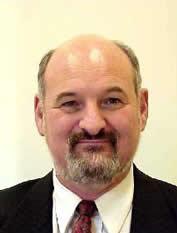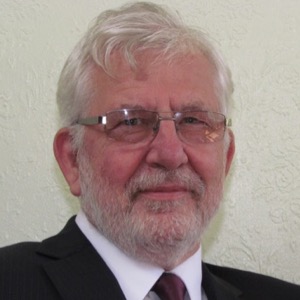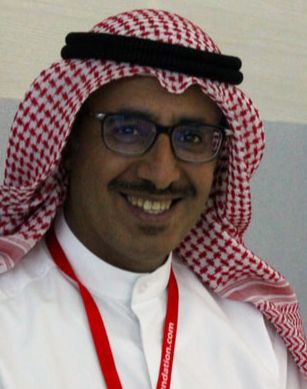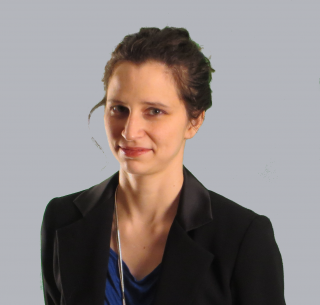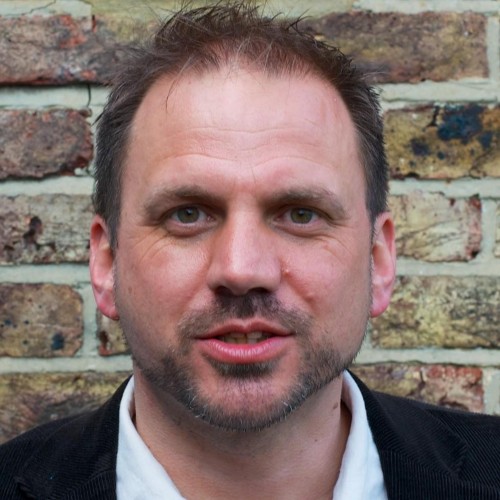Locating the National in the International: Comparative Perspectives on Language, Identity, Policy, and Practice
GCES Symposium 2014
Get in touch
GCES Symposium 2014
Fifth Annual GCES Symposium
The theme of the fifth annual Symposium was “Locating the National in the International: Comparative Perspectives on Language, Identity, Policy, and Practice.” The Symposium examined issues relating to language and cultural heritage in the context of the creation of inclusive and outward looking educational spaces.
As countries in the region seek to simultaneously to preserve traditions and culture while embracing modernity, challenges inevitably arise, particularly in the education sector.
By bringing together academics, policymakers, and educators to compare educational policies and practices across the region, the Symposium explored some of the issues surrounding language, identity, and education in the GCC.

Keynotes and Guest Speakers
Dr. Tony Townsend
Dr. Tony Townsend has worked all over the world from Macau to Mongolia, from Fiji to France and from Brazil to Belarus. He has been a professor at Monash University in Australia, Florida Atlantic University in the USA and, most recently at the University of Glasgow. He has been President of the International Congress for School Effectiveness and Improvement (ICSEI), and President of the International Council on Education for Teaching (ICET). He was made a life member of ICSEI in 2011. He has been a visiting professor in Michigan, USA; Pretoria and Durban in South Africa; Saskatoon, Canada; Macau, Malaysia; Brno, Czech Republic; and Dublin, Republic of Ireland. He has been the Australian Council for Educational Leaders’ Travelling Scholar, has managed 5 major international conferences and presented or consulted in over 60 countries for Ministries and departments of Education, for UNESCO, the British Council and the Commonwealth Education Trust. He has published 11 books and numerous articles and papers in the areas of school effectiveness, school improvement, leadership, teacher education, and community education and development, in Australia, Europe and North America.
Dr. Keith M. Lewin
Professor Keith Lewin is the Professor of International Education and Development at the University of Sussex. He founded the International Masters programme at Sussex and has Directed the Centre for International Education for 17 years. He is a specialist in educational planning, economics and financing, teacher education, and science education policy. He has extensive experience of education systems in Sub-Saharan Africa, South and South East Asia, and China and has worked extensively with DFID, the World Bank, UNICEF, UNESCO, AusAID, and many national governments. He was a co-convenor of roundtables on financing education at both the Jomtien (1990) and Dakar (2000) World Conferences and was senior advisor on educational financing for expanded secondary education to the World Bank Secondary Education in Africa programme, and for Rashtriya Madhyamik Shiksha Abhiyan in India. Since 2005 he has directed the DFID supported multi-country Consortium for Research on Educational Access, Transitions and Equity (CREATE) which has involved over 150 researchers across nine countries and has produced 23 new PhDs and extensive research outputs (see www.create-rpc.org). He sits on the research board of the Privatisation of Education Research Initiative (PERI) of the Open Society Foundations.
Dr. Abdullah Alajmi
Dr. Abdullah Alajmi is an anthropologist with interests in development, economic culture, migration, sociolinguistics. He was initially trained in the United States in anthropology and oral history and has worked in the American South in a major project to collect the oral history of the civil rights movement in Mississippi. In the US, his first Master’s thesis examined a relationship between cultural genres and state politics. Dr. Abdullah moved to the London School of Economics (LSE) where he wrote another Master’s thesis on the problematics of state development in Kuwait. At LSE, his PhD was an ethnographic research among Yemeni immigrants in Kuwait in which he examined the values and practices of a peculiar culture of dependency that developed throughout the history of Hadrami migration to Kuwait. Currently, Dr. Abdullah is the Assistant Director of Academic Affairs at the Arab Open University of Kuwait. He also teaches courses on Arab development, globalization, and foundations in open learning.
Dr. Calvert W. Jones
Dr. Calvert W. Jones is an assistant professor of political science at The City College of New York (CUNY). She earned her Ph.D. in political science from Yale University in 2013 following master’s degrees from Cambridge and U.C. Berkeley and a bachelor’s degree from Columbia. Her current research examines international development, top-down social engineering, and the fashioning of market-friendly cultures in the Middle East. Earlier research focused on international security, transnational networks, and the social and organizational drivers of innovation. She has also worked in international development in Vietnam and the Balkans, focusing on fund-raising and women’s entrepreneurial development. Her research has appeared in International Studies Quarterly, International Security, and the Cambridge Review of International Affairs. She is currently working on a book project entitled “Bedouins into Bourgeois: Kings, Experts, and Citizen-Making in the United Arab Emirates.
Glen Poole
Glen Poole is a pioneering voice in the world of gender equality with a unique ability to connect the many different factions of the “Global Men’s Movement” in pursuit of better outcomes for men and boys in areas like health, fatherhood, education and personal safety. He is based in the UK where he hosts the annual National Conference for Men and Boys. He is a lead co-ordinator for International Men’s Day in the UK and globally, and runs the consultancy Helping Men. Glen is committed to building a dynamic global network of professionals and experts to spread best practice and help tackle the major gender inequalities that men and boys experience including lower life expectancy, poor educational outcomes, high male suicide rates and violence against men and boys. He is the author the books Equality For Men (published 2013); Helping Men (published March 2014) and Integral Gender Theory (September 2014).

Program & Schedule
The conference is aimed to stimulate discussions on educational reform in the GCC. This program provides a platform for current and future research that explores achievements, challenges and pitfalls in education. As the education landscape continues to change, it is important to explore the way former education-related practices influence how education is practiced now and in the future.
Registration Open
Session 1: Data Analysis Techniques in Educational Research
Coffee break
Session 2: Designing and Using Effective Surveys in Applied Research
Registration Open
Welcome to Dubai (Philip Quirke, Executive Dean of General Studies & Education, Higher Colleges of Technology)
Introduction to GCES (Christina Gitsaki, GCES President and Associate Dean of Foundations, Higher Colleges of Technology)
Plenary
Coffee break
Featured Panel 1: Shaping Identity: Influences and Role Models
Featured Panel 2: International Trends: Regional Realities
Lunch break
Breakout Session 3.1: Identity, Employment, and Inclusion in the Arab World
Breakout Session 3.2: Locating Accreditation in Higher Education in the MENA Region: Why? When? And For Whom?
Breakout Session 3.3: Constructing Teacher Identity
Breakout Session 4.1: Intersection of the National and International in Higher Education
Breakout Session 4.2: Perspectives on Student Learning and Curriculum
Breakout Session 4.3: Exploring Teacher and Student Identity
End
Announcements
Chair – Natasha Ridge
Coffee break
Panel 5 (featured): Local Interpretations of International Education in Kuwait
Panel 6 (featured): Research and Education in the UAE
Lunch break
Panel 7.1: Shaping National Student Identity
Panel 7.2: Exploring Education Administration: Quality Improvement and Communication (Arabic & English Panel)
Panel 7.3: Education Reforms, Policies, and Shaping Identity
Panel 8.1: Arabic and Identity Formation
Panel 8.2: Assessment Issues in UAE Schools (New Scholars Panel)
Concluding Remarks
End



